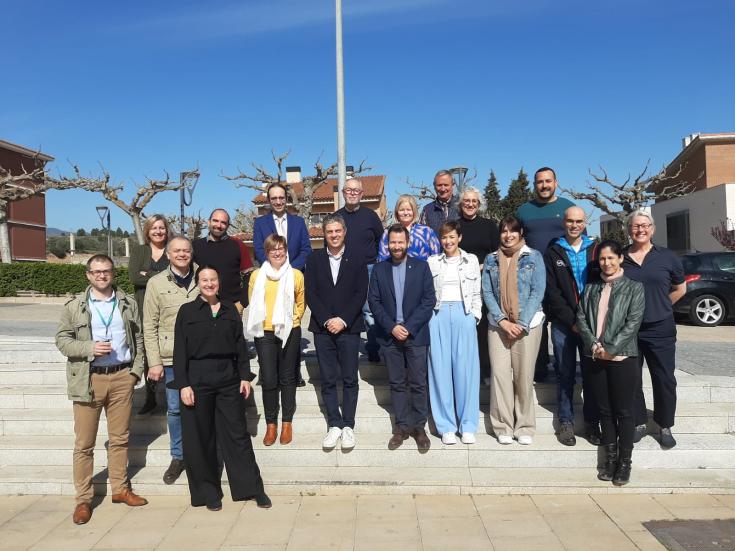Supporting the development of Renewable Energy Communities

On 28 and 29 March 2023, the Policy Learning Platform organised a peer review for the benefit of the municipality of Ascó, Spain. with a focus on renewable energy communities.
Peers from across Europe
Alongside Katharina Krell and Astrid Severin, our thematic experts, six excellent peers participated in the peer review:
- Benjamin Wilkin, Energie Commune, Brussels and Walloon region, Belgium
- Caitriona Strain, ERNACT, Donegal, Ireland
- Marc Roselló, Som Energia, Spain
- Marco Bailo, Mayor, Magliano Alpi, Italy
- Sergio Olivero, Manager of the REC of Magliano Alpi, Italy
They provided the host with valuable insights, know-how, and practical suggestions for solving the challenges combined with some recommendations.
Recommendations
From the outset, the conditions are favourable for the emergence of the first Renewable Energy Communities (RECs) at Ascó:
The area has plenty of renewable energy potential (sun and wind), and the municipality is keen to support RECs as a means to create local added value and increase acceptance for renewable energy projects.
The following elements were discussed within the group and formed the basis for the recommendations elaborated by the peers. A full overview of all recommendations can be found in the follow-up report.
Multiple stakeholders need to be made aware of the opportunities of RECs as they all could play a role in a REC: resident associations, schools, community groups, charities, churches, local business.
Three types of RECs can be distinguished: community-led RECs, company and industrial-area-led RECs and RECs initiated by public administrations.
There are different models for RECs: produce green energy only, sell green energy, or do both.
Municipalities have an important role to play to support RECs: Their involvement creates trust as they are perceived as honest brokers with no commercial interests
Municipalities can start RECs by e.g. using their communication channels to reach out to citizens, dissemination information, organising information and stakeholder meetings on their premises, providing staff support, setting ambitious decarbonization targets, creating budget lines to support RECs (setup costs, feasibility studies, management support), engage in exchange with other municipalities and established RECs.
A REC should start around a first pilot project for which the Mayor should show strong political support. PV is the most straightforward technology to build a pilot project as an emerging REC. The project should not be too big and offer quick wins. These should be communicated widely to trigger more interest.
The municipality can support the REC by offering public roofs or parking spaces to the REC for PV projects.
Expertise for new RECs can be sourced from existing RECs who act as mentors, local renewable energy experts, lawyers, technical schools, and public utilities.
Guidance material about RECs exists in multiple formats and languages for those interested to learn about community energy.
The governance structure of a cooperative REC ensures a democratic structure representative of the members and transparent decision-making.
The cooperative appears to be the most adequate legal structure in the Spanish context
Peer review report
Explore the recommendations in the peer review report.
Ascó peer review final report
Explore the recommendations in the peer review report.
Apply for a peer review!
Submit your peer review application today and find solutions to your policy challenge with our experts and peers!

